- Home
- Patrick Logan
Father
Father Read online
Get Patrick Logan’s Starter Library FOR FREE
Sign up for my no-spam newsletter and get WITCH (Family Values Trilogy Book 0) -- and the short story SYSTEM UPDATE FOR FREE and be the first to know of new releases and sales.
Details can be found at the end of this novel.
Father
Family Values Trilogy
Book 2
Patrick Logan
Prologue
Lacy McGuire held her breath and listened as the footsteps in the hallway neared her room.
Go away, she pleaded.
The footsteps slowed, and then stopped completely when a pair of legs blocked most of the light spilling in from the crack beneath the door.
Go away—please, just go away.
Lacy stared at those legs with wide eyes for nearly a full minute, listening to the sound of the blood rushing in her ears and her heart beating in her chest.
To her, it sounded like one of the drums that she had seen the boy in the funny hat banging on before the football game.
Even when the legs moved away from the door and the light from the hallway spilled in again, she didn’t dare take another breath. And even when the footsteps receded down the hallway, Lacy sat as quietly and as still as possible. Only when she heard the door to her father’s room open and then close did she finally let the air out of her lungs in a whoosh.
She gulped in a fresh breath, and a small smile crept onto her four-year-old face. Feeling daring, she pulled the sheet back up over her head. This part almost always made her giggle, as it reminded her of a scene in the movie that Daddy had told her wasn’t for kids—that it was too scary—and that she should go to bed.
But Lacy had crept back down and watched between the bars of the railing.
Daddy was wrong, she wasn’t scared. She was a big girl—even if she had bad dreams every once in a while.
In fact, she thought the ‘ooglie-booglie,’ as they called it in the movie, was funny. And that was what she felt like now, what with the sheet over top of her head.
An ooglie-booglie.
Lacy wondered what would happen if her dad quickly left his room and opened her door wide and saw her like this.
He would be soooo scared.
Lacy stifled a giggle with a cupped hand.
But Daddy never came back, not until morning. Every single night he would walk up to her door, listening maybe, or just waiting to see if she would call to him as she occasionally did, needing to pee again, wanting a glass of water, or just for another hug and kiss, before heading back down the hallway to his room.
And then he would sleep, and so would Lacy… eventually.
Every night, it was always the same.
Routine, he called it. He said it was for him, that he was an old man (he wasn’t really that old) and that he had to keep a routine or else he would fall apart.
But she knew that it wasn’t for him, not really.
It was for her.
Because of her dreams… the bad ones that had kept her up so many nights even before Mommy got sick.
Dreams of a fire, of a woman screaming, of…
Lacy swallowed hard and forced these thoughts away. Instead, she tried to think of the ooglie-booglie again, because that was funny.
The burning woman was not.
She flicked on her headlamp and opened the Curious George book in her lap, taking a quick peek to make sure that with the blanket pulled up over her head the light didn’t leave beneath the door the way that it came in.
Daddy never came back, but if he saw the light, then maybe…
The last thing Lacy wanted was to get in trouble, but she just had to read a little bit more… even though she only made up the words and stories herself while she looked at the pictures.
The first image was of George, that silly monkey, in an apron, making pizzas of all things.
Lacy started to read, barely whispering the narrative that came into her head, using some of the words that Daddy used when he was reading to her, but mostly just making up the story as she went along.
Lacy was on the third page when she heard the footsteps again.
As before, her heartrate quickened and she held her breath.
But this time, her brow tightened in confusion.
He’s coming back? He never comes back.
Lacy reached up and switched off her headlamp and sat in the darkness, the sheet still forming a makeshift tent over her head.
After listening for a moment longer, she realized that the footsteps weren’t coming back, as she had first thought, but instead they were coming from the other way, from the stairs again.
Did Daddy go back downstairs while I was reading?
Lacy slipped the sheet off her head and lay down, making sure to keep her head propped on the pillow so that she could still see the light coming from beneath the door.
Daddy always kept the hallway light on, in case she had to pee in the middle of the night.
And it also helped keep the dreams away.
As usual, the footsteps slowed as they approached the door, and then came to stop directly in front of it, the two feet again blocking out half the light.
Lacy closed her eyes, and pretended to sleep, practicing just in case her father came in the room (which he never did unless she called).
She couldn’t hold her breath any longer, so she let herself breathe again, but tried to do it slowly, the way that Daddy did it when he occasionally fell asleep on the couch.
Time passed, and when she didn’t hear her father continue down the hall to his room, she risked opening one eye.
The legs were still blocking the light.
How long is Daddy going to stand there?
Lacy always assumed he just stood and waited to make sure she wasn’t reading or talking to herself. But this time he had been standing there for… well, she didn’t know how many minutes, but it seemed like a lot.
She was debating whether or not she should call out to him, weighing the need to see if he was okay with getting in trouble for being up so late, when the doorknob started to turn.
Lacy squeezed her eyes closed and went back to pretending to sleep.
The pressure in the room changed as the door was silently pushed open.
Sleeping, sleeping, sleeping… I’m sleeping.
She repeated the words over and over in her head, as if to convince her father and herself that she was indeed asleep.
And she also used this technique to keep her mind from wandering, from going back to the nightmare that been haunting her for so long…
Why is Daddy in here? He never comes back… not unless I call for him, and I haven’t done that in a long time.
Lacy swallowed hard and squeezed her eyes together even more tightly.
Sleeping, sleeping, sleeping…
There was a long, slow footstep, followed by another.
And another.
Then Lacy’s nose picked up a strange smell. It wasn’t her dad’s—what does he call it? His shave after?—which she didn’t really like that much but lied when he asked.
It was something else. Something worse.
Another footstep, and the smell intensified.
Sleeping, sleeping, sleeping…
Two more footsteps, and then the smell was so strong that she couldn’t help but scrunch her nose.
It smelled like… campfire.
It smelled like burning.
It smelled like her dream.
Little Lacy McGuire couldn’t keep up the charade any longer. Her blue eyes popped open and she whispered into the near darkness.
“Dad?”
The response was unexpected: three quick steps and then someone’s face came into view.
But it wasn’t her father—she had never seen this man bef
ore.
Lacy’s eyes widened and she opened her mouth to scream, but the man slipped a dirty hand over her mouth.
He wasn’t smiling—if anything, he looked sad.
“Dad!” she tried to yell, but the hand across her mouth tightened.
The man’s fingers tasted of dirt and ash.
Lacy tried to sit up, but the man was too strong.
“I’m sorry,” he said in a gruff whisper. “I’m sorry, but a promise is a promise…”
And then Lacy started to kick and punch, trying to break away from the man with the sad eyes and the strong grip.
Part I – Murder/Suicide
Chapter 1
FBI Agent Kendra Wilson put a hand over her nose and mouth even before pushing through the front door.
Instinct and experience told her that the smell would be bad.
That and her partner, Agent Brett Cherry, had told her that there were three bodies inside. He didn’t have to tell her that they had been mutilated.
Instinct told her that, too.
And experience.
“Where are the bodies?” she asked a uniformed officer who stood on the stoop outside the door, his face an off shade of green.
The man, who had a thick brown beard and thicker bags under his eyes, swallowed hard.
“Kitchen,” he said, averting his eyes.
Kendra acknowledged the man with a nod. He looked like he was going to vomit, and considering that there was barely enough room for the two of them on the cement stoop, she knew that some would land on her.
And her loafers.
Three bodies.
She used the hand not covering her nose and mouth to push her way through the half-opened door, quickly leaving the nauseated officer behind. Even between the fingers of her gloved hand, her nose picked up the unmistakable, coppery scent of blood.
Kendra’s eyes immediately tracked the blood smear that ran from a foot inside the door, across the linoleum entranceway, before tracking all the way down the hallway and into what she presumed was the kitchen.
Even before she had entered the house—truthfully, even as she had parked her car on the opposite side of the street and first laid eyes on the single-story home—her mind had been whirring.
Like a computer, pragmatic, calculating, scouring her neurons for similarities with past cases, Kendra’s brain had started to mentally collate facts and theories, to put things into place.
It was the call that had first set things to motion.
The director had called her, which was in itself a rarity. Most of the time, her cases were fed to her by her senior partner, Brett Cherry, who had a direct line to the director. Not that it mattered—she didn’t have any ego in this. It was about solving the case for her, about making sure that the bad guys got what was coming to them.
So what did it matter if she lived and breathed in a masochistic, sexist world?
Everyone did, after all. She wasn’t unique.
As her eyes followed the trail of blood, noting such details as the finger patterns in the tacky, almost completely dry liquid and the lack of footsteps, she replayed the conversation with the director that had roused her from her slumber.
‘Yeah?’ came her groggy, sleepy voice.
‘Agent Wilson.’ Alert, already on his third cup of coffee voice, most likely.
‘Yeah?’
‘Three dead in Missouri—husband, wife, and young girl.’
Those fateful words rattled the comforting numbness of sleep from the last of her gray matter.
She hated criminals, hated them all. But what really got her blood boiling were crimes against kids.
Especially young girls.
‘Murder/suicide?’ she asked, her voice hardening.
‘Suspected. I’ve sent the details to your cell. Agent Cherry is off on another case—you’re alone on this one.’
‘Thanks,’ she said, but the director had already hung up.
And that had been three hours ago. It had taken her roughly fifteen minutes to shower, put on her black slacks and white blouse, and leave the house. She had done her hair and put on the minimum of makeup acceptable in this man’s world, and then she’d been off.
And now she was here, inside this house that stank of blood, her mind already formulating a schema of what had taken place.
But before she could re-enact it all, she needed more answers.
Patience.
The questions would come, and the answers would follow.
They always did.
Strafing the wall, making sure that her flats didn’t disturb the foot-wide streak of blood, Kendra’s suspicions that the trail led to the kitchen were confirmed.
And it was there, in the small kitchen with dark wood cabinets that contrasted heavily with the white appliances, that she found the bodies.
The three of them were stacked on the floor, all nude—from what she could make out, anyway.
The man was on top, his throat cut in a ragged smile. His wife was beneath him, but the man was so much larger that Kendra couldn’t get a good idea of what had caused her death.
If she had to guess, she would have said throat slashing as well.
It was the girl that gave Kendra pause. She was so tiny that only her hand could be seen beneath her parents’ collective bodies, the pale digits speckled with blood, the fingers spread out as if she had been crushed while trying to claw her way out. However unlikely this scenario—blood that had poured from the man’s throat and pooled around the sides of her body suggested that all three were dead when he had finally laid on top—it was still vivid in Kendra’s mind.
She swallowed hard, trying to put some distance between herself and the crime. She was here to figure out what had happened, not to play the sappy housewife.
There was a uniformed officer, a stronger-stomached twin of the man outside, leaning over the bodies, and a few more uniforms milling about the kitchen, going through the dead family’s possessions.
Kendra turned to the nearest officer.
“Where’s the coroner? How come they haven’t moved the bodies off her?”
She didn’t need to say the girl or the child; her was implicit enough.
The man looked up, his dark eyes hard. He had a thin mustache on his black face, and thick grooves that lined his cheeks—not just around his mouth, but there was an intricate network of spider webs by the corners of his eyes as well.
When he spoke, his voice was exactly as she expected: gravelly and distinct, like James Earl Jones with a cold.
“Still upstairs, working their way down.”
Upstairs. Why the fuck are they upstairs when the family is down here?
“What are they doing up there?”
“Searching the parents’ room.”
Kendra made a face, but decided against challenging this approach.
It was better to be diplomatic. Instead, she hooked a thumb over her shoulder.
“The officer—”
The man with the mustache waved her off.
“Frank’s a little sensitive, is all. Hasn’t been at it for as long as myself.”
Or me, Kendra thought, her eyes darting to the girl’s pale, dead fingers.
While she doubted she had been around for nearly as long as the black man now crouched by the pile of bodies—late fifties, early sixties, she guessed—as an agent, she only saw the worst. Twelve years as an agent equated to at least double that as a detective, and maybe triple as a uniformed officer.
The man rose out of his crouch and took a wide berth around the pile of bodies, making an effort to avoid stepping in the trail of blood.
Seeing him standing upright, she realized he was taller than she had initially thought, easily dwarfing her five-foot-eight frame. Tall and thin, and probably a smoker, too—the thick bags suggested he was either a smoker or an asthmatic.
She bet the former.
The man held out his hand.
“Detective Clark Tennison,” he said, then added s
omething that was completely unnecessary given the circumstances. “Homicide.”
As an FBI agent that traveled from state to state, and occasionally collaborated internationally, Kendra had met officers, detectives, captains, military personnel, and other agents from all walks of life. While occasionally she met a sergeant who was hell-bent on becoming captain and needed to pad his resume with just one more high-profile murder to notch his often considerable belt with, which came with the appropriate friction, their relationships weren’t like in the TV shows.
The FBI and the local PD or detectives didn’t hate each other. In fact, PD often welcomed Agent Wilson and Agent Cherry, as their arrival meant that some of the load was off of them.
As was the pressure.
Kendra grabbed the man’s hand and shook it.
“FBI Agent Kendra Wilson,” she said, pressing her lips together, forming a tight line across her pale face.
Detective Tennison nodded and turned back to the stacked corpses, waiting for Kendra to speak again.
She didn’t immediately oblige. Instead, she observed. Kendra could tell a lot by what an officer or detective said or didn’t say while staring at corpses.
If they went with the clichéd, ‘sad, isn’t it?’ or ‘such a shame, so young…’ then she knew that they thought deep down they thought they were better than her, smarter, more experienced, more masculine, which was tied with the condescension they didn’t even realize they had laced their words with.
Of course it was fucking sad, especially with children—no need to say it to make it true.
If instead they went with, ‘ever seen anything like this?’ then Kendra knew that they were new to this game, that they were eager—too eager—to accept whatever profile she came up with.
If, instead, they offered a suggestion, or, like Tennison, said nothing at all, then she knew that they were going to get along just fine… and that they might even be of use when it came to finding out the answers she so desperately sought.
“Murder/suicide, most likely,” Clark said finally, a hint of solemnity on his tongue. He raised his finger and traced a phantom line from the blood at the front of the house to the bodies. “Looks like the woman was cut pretty bad and tried to make a run for it.”

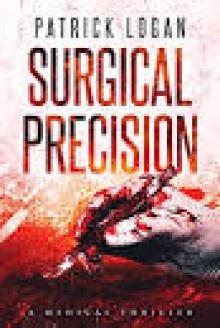 Surgical Precision
Surgical Precision Detective Damien Drake series Box Set 1
Detective Damien Drake series Box Set 1 Drug Lord- Part I
Drug Lord- Part I Georgina's Story
Georgina's Story Injecting Faith
Injecting Faith Drug Lord- Part II
Drug Lord- Part II Dirty Money (A Chase Adams FBI Thriller Book 5)
Dirty Money (A Chase Adams FBI Thriller Book 5) Detective Damien Drake series Box Set 2
Detective Damien Drake series Box Set 2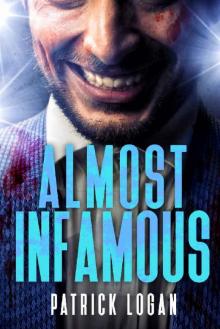 Almost Infamous (Detective Damien Drake Book 9)
Almost Infamous (Detective Damien Drake Book 9) Bitter End
Bitter End Shadow Suspect
Shadow Suspect Witch
Witch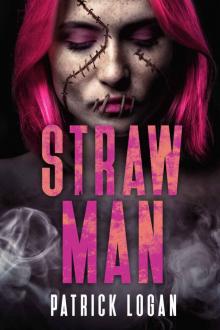 Straw Man
Straw Man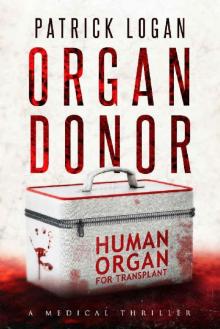 Organ Donor: A Medical Thriller (Dr. Beckett Campbell, Medical Examiner Book 1)
Organ Donor: A Medical Thriller (Dr. Beckett Campbell, Medical Examiner Book 1) Shores of the Marrow
Shores of the Marrow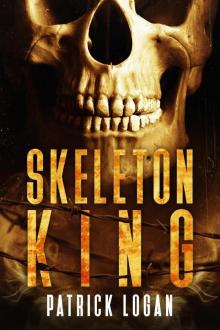 Skeleton King
Skeleton King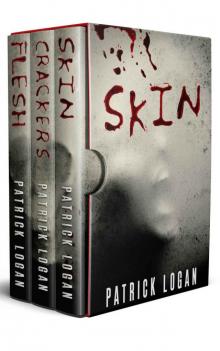 Insatiable Series Omnibus Edition (Books 1-3)
Insatiable Series Omnibus Edition (Books 1-3) Download Murder
Download Murder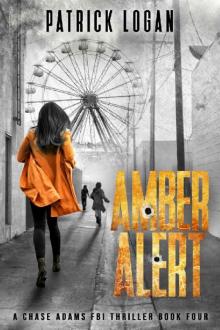 Amber Alert
Amber Alert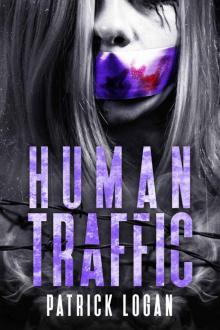 Human Traffic
Human Traffic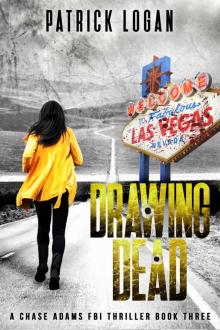 Drawing Dead (A Chase Adams FBI Thriller Book 3)
Drawing Dead (A Chase Adams FBI Thriller Book 3)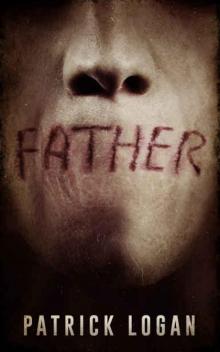 Father
Father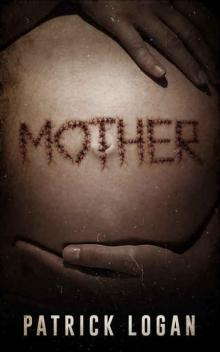 Mother
Mother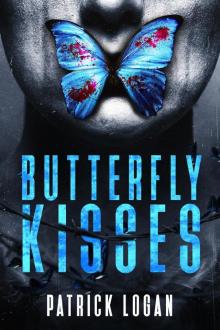 Butterfly Kisses
Butterfly Kisses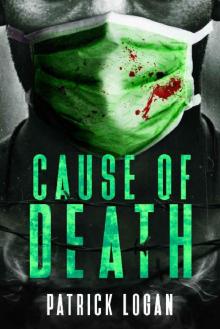 Cause of Death
Cause of Death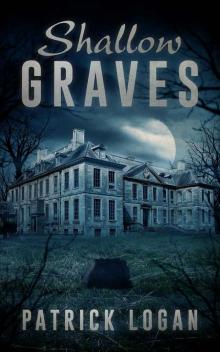 Shallow Graves (The Haunted Book 1)
Shallow Graves (The Haunted Book 1) Daughter (Family Values Trilogy Book 3)
Daughter (Family Values Trilogy Book 3)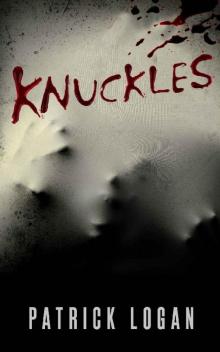 Knuckles
Knuckles Shores of the Marrow (The Haunted Book 6)
Shores of the Marrow (The Haunted Book 6)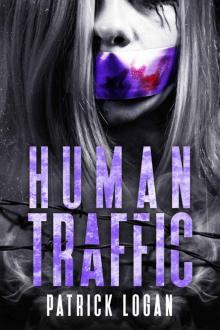 Human Traffic (Detective Damien Drake Book 5)
Human Traffic (Detective Damien Drake Book 5)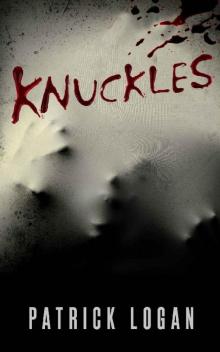 Knuckles (Insatiable Series Book 4.5)
Knuckles (Insatiable Series Book 4.5)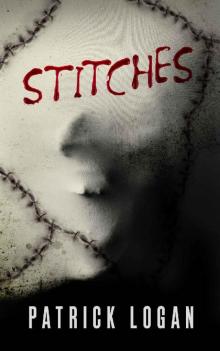 Stitches (Insatiable Series Book 5)
Stitches (Insatiable Series Book 5)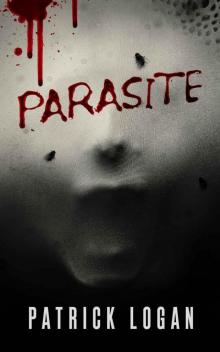 Parasite
Parasite System Update
System Update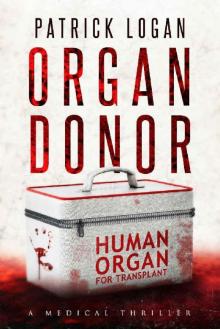 Organ Donor_A Medical Thriller
Organ Donor_A Medical Thriller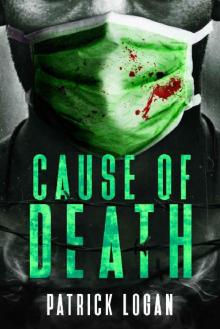 Cause of Death (Detective Damien Drake Book 2)
Cause of Death (Detective Damien Drake Book 2) Daughter
Daughter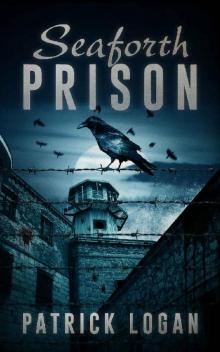 Seaforth Prison (The Haunted Book 3)
Seaforth Prison (The Haunted Book 3)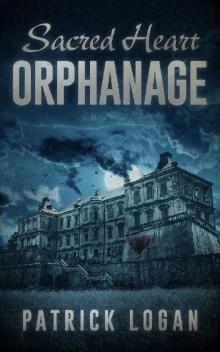 Sacred Heart Orphanage (The Haunted Book 5)
Sacred Heart Orphanage (The Haunted Book 5)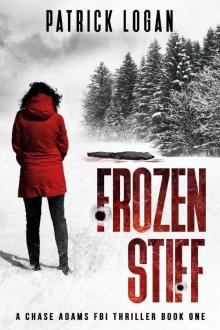 Frozen Stiff
Frozen Stiff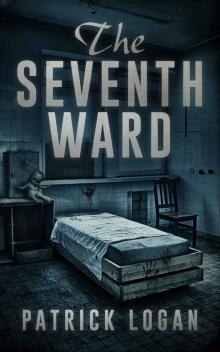 The Seventh Ward (The Haunted Book 2)
The Seventh Ward (The Haunted Book 2) Drawing Dead
Drawing Dead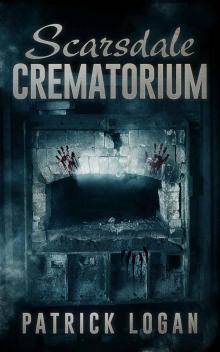 Scarsdale Crematorium (The Haunted Book 4)
Scarsdale Crematorium (The Haunted Book 4)